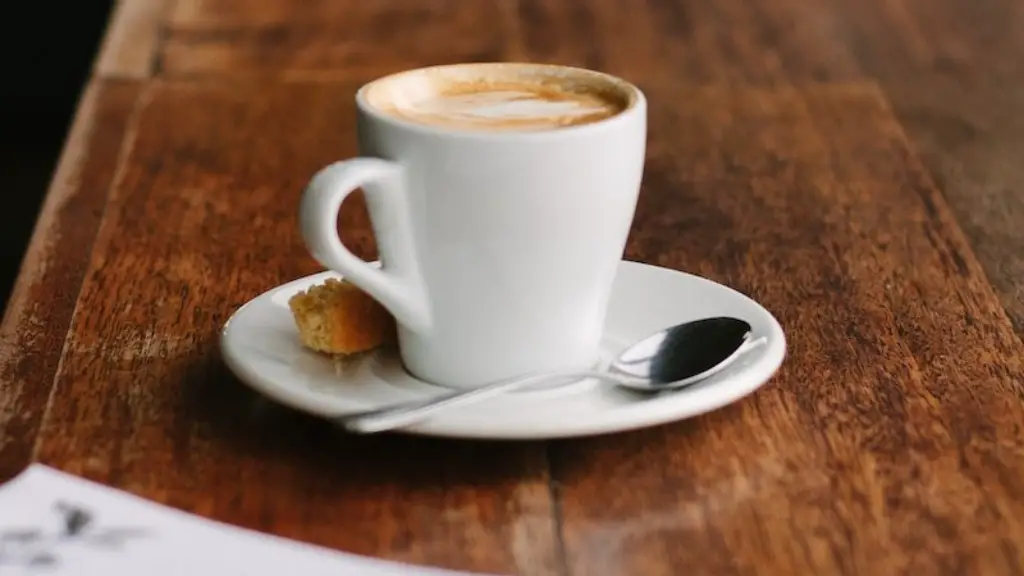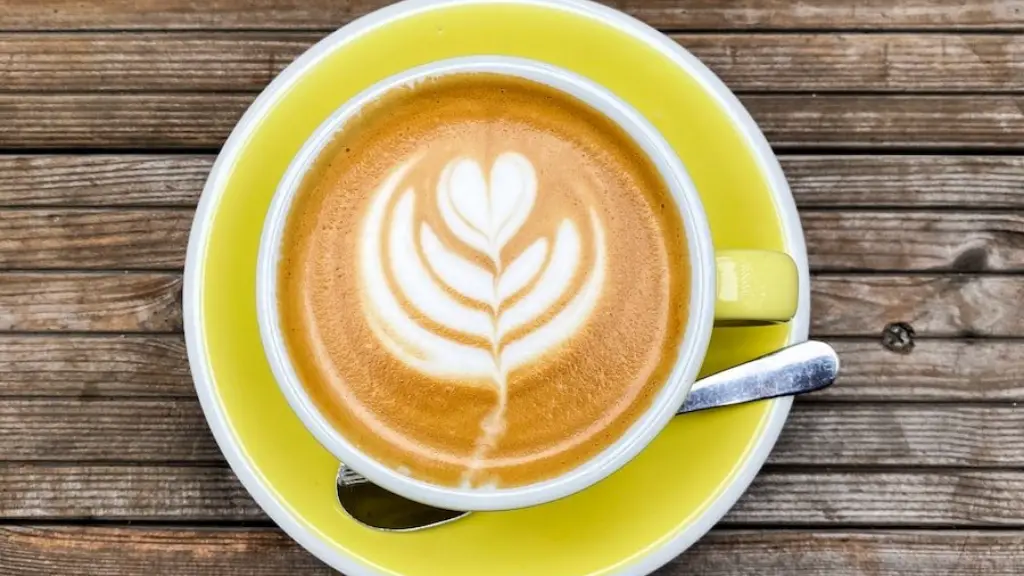It is a common belief that drinking cup of coffee a day can irritate the bladder and lead to urinary problems such as frequent urination, urgency, and a feeling of incomplete bladder emptying. While the caffeine in coffee is a known diuretic and can increase urination, it is not completely clear that it is the cause of bladder irritation and other urinary problems.
Caffeine is one of many stimulants, also referred to as xanthines. It causes a mild increase in urinary output and decreases the tone of the bladder. The xanthines and their effect on bladder pressure has been documented to some extent in animal studies, but the effects in humans are still unclear.
There are other components of coffee that can increase irritation and bladder pressure such as proanthocyanidins. These compounds have been shown to have antibacterial effects, reduce bladder infection and improve urine flow. However, studies have suggested that high levels of proanthocyanidins can irritate the bladder and possibly lead to increased urination and urgency.
Studies have also looked at the effects of coffee consumption on people who have an overactive bladder. People who drank more than five cups of coffee per day were more likely to experience symptoms such as urgency, frequency and a feeling of an incomplete bladder emptying. The same study showed that those who drank less than five cups of coffee per day had fewer bladder problems.
Despite the research that suggests that coffee consumption can irritate the bladder, there are some who believe that this is not true. They point to the fact that there are different types of coffee, and different levels of caffeine consumption which may not be enough to create bladder irritation. Additionally, the other active compounds in coffee that may be the cause of bladder irritation are not always taken into account.
It is also important to note that bladder irritation may not be directly caused by coffee, but may be the result of other lifestyle habits. Bladder irritation can be caused by dehydration, a lack of exercise, or other dietary changes. Additionally, individuals who have underlying medical conditions such as bladder infections may be more susceptible to bladder irritation when drinking coffee.
In conclusion, while there is evidence to suggest that drinking coffee can irritate the bladder, it is still not completely clear how much coffee is too much, and how much is safe to consume. It is important to note that lifestyle changes and underlying health conditions may play a role in bladder irritation as well. Therefore, it is best to talk to your doctor about any concerns you may have about the effects of coffee on your bladder.
Dehydration and Bladder Irritation
Dehydration can be a major contributing factor to bladder irritation, since it can cause the bladder to become overactive. When people are dehydrated, they are not only at risk of developing a bladder infection, but also of feeling discomfort when they have to urinate. Drinking coffee, even in moderation, can exacerbate this condition and make a person more likely to experience bladder irritation. Additionally, the increased urination associated with drinking coffee can lead to further dehydration and make the problem worse. It is important to stay hydrated throughout the day and consume enough water to ensure that the body does not become dehydrated.
Dehydration can also be caused by other lifestyle habits, such as not drinking enough fluids, drinking too much alcohol, or engaging in strenuous activities. Additionally, certain medications can also lead to dehydration, which can then lead to bladder irritation. It is important to monitor your intake of these factors, as well as to consult with your doctor to ensure that dehydration is not contributing to bladder irritation.
Managing Stress To Combat Bladder Irritation
Stress is another major contributing factor to bladder irritation. Stress can lead to a decrease in bladder function, which can in turn lead to increased urgency and a feeling of incomplete bladder emptying. Additionally, stress can also lead to an increase in urinary output, which can further increase the chances of bladder irritation. Therefore, it is important to find ways to relax, such as exercising, meditating, or engaging in other stress-relieving activities.
Moreover, relaxation techniques such as yoga, tai chi, or progressive muscle relaxation can help to reduce stress levels and decrease the amount of tension in the body. Additionally, engaging in activities such as listening to music, reading a book, or taking a hot bath can help to reduce the symptoms associated with stress. Additionally, deep breathing exercises can be used to help slow down the body and reduce stress levels, which can be beneficial for reducing bladder irritation.
Diet and Bladder Irritation
The diet can also play an important role in bladder irritation. Eating a healthy, balanced diet can help to reduce the chances of bladder irritation, as it can reduce the amount of irritants in the body. Additionally, avoiding foods that are high in caffeine, such as coffee, tea, and soda, can also help to reduce the chances of bladder irritation. Moreover, eating a diet high in fiber can also help to reduce the chances of bladder irritation, since fiber helps to keep the bladder functioning properly.
Furthermore, avoiding foods that are high in acid or have a diuretic effect can also help to reduce bladder irritation. Examples of foods that have a diuretic effect include cranberry juice, parsley, asparagus, and watermelon. Lastly, avoiding foods that are high in sugar, such as cake, cookies, and candy, can also help to reduce bladder irritation. Doing so can help to reduce the amount of sugar in the body, which can be beneficial for overall bladder health.
Herbal Remedies to Aid in Bladder Irritation
Herbal remedies are another option for treating bladder irritation. Many herbs have anti-inflammatory, antimicrobial, and other beneficial properties which can help to reduce inflammation in the bladder and treat symptoms such as urgency and frequency. Some of the most popular herbs for bladder irritation include marshmallow root, chamomile, and uva ursi.
Marshmallow root has anti-inflammatory and antimicrobial properties and can help to soothe irritated bladder tissues. Additionally, chamomile has antispasmodic properties which can help to reduce spasms in the bladder, as well as soothe inflammation. Lastly, uva ursi has antimicrobial and astringent properties which can reduce irritation and promote healing in the bladder. All three of these herbs can be consumed in tea or capsule form to help treat bladder irritation.
In addition to these herbs, other natural remedies can also be beneficial for treating bladder irritation. Drinking plenty of water is essential for maintaining good bladder health, as it helps to flush out toxins and reduce irritation in the bladder. Additionally, consuming probiotic foods can also help to support a healthy bladder and reduce the occurrence of bladder irritation. Probiotics can be found in yogurt, fermented foods, and kombucha.
Bladder Irritation Treatment
While there are a variety of lifestyle changes and natural remedies that can help to reduce bladder irritation, in some cases medical intervention may be necessary. In cases of severe bladder irritation, a doctor may prescribe medications, such as anticholinergics, which can help to reduce muscle spasms and reduce bladder irritation. Additionally, in cases of infection, antibiotics may be prescribed to treat the infection and reduce bladder irritation.
Finally, in cases of chronic bladder irritation, surgery may be an option. Surgery can help to repair any damage to the bladder and reduce the symptoms associated with bladder irritation. However, it is important to discuss the risks and benefits of any surgical intervention with a doctor before proceeding.




